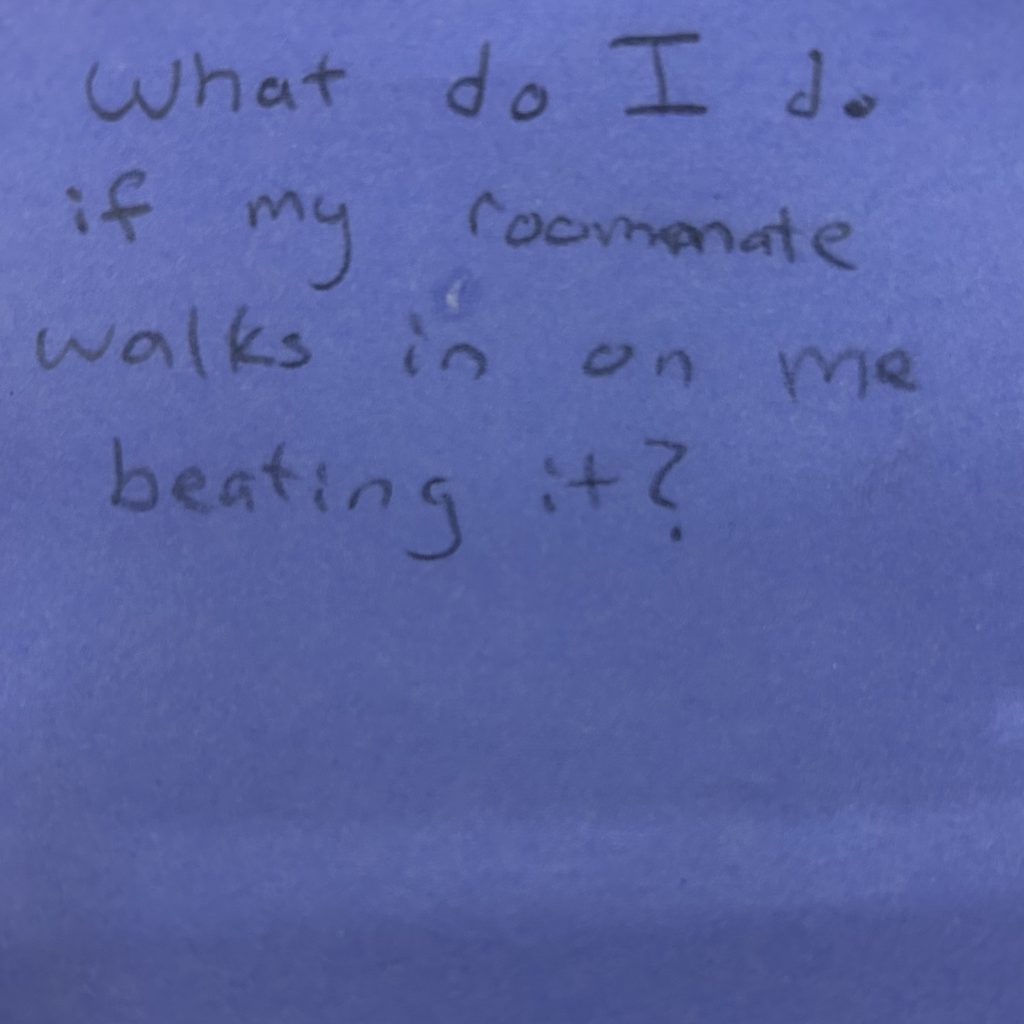
I would suggest trying to avoid that situation altogether by doing that in a more private location. Failing that, apologies always go a long way, as do promises that they won’t be subjected to it again.
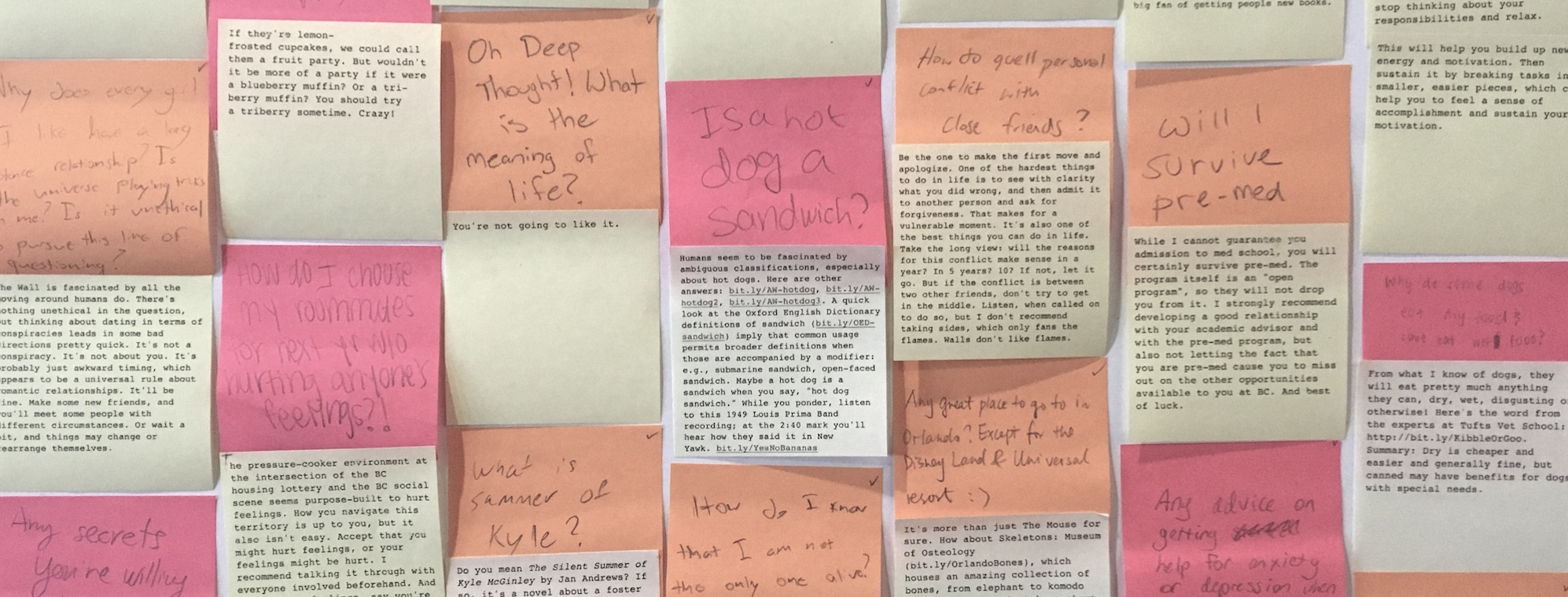
Answering questions at Boston College O’Neill Library

Beauty is, as they say, in the eyes of the beholder and it is also more than skin deep. Perhaps some of the qualities that make you enjoy your girlfriend’s company – personality, sense of humor, the conversations you can have – are all part of the special sauce that makes her pretty.
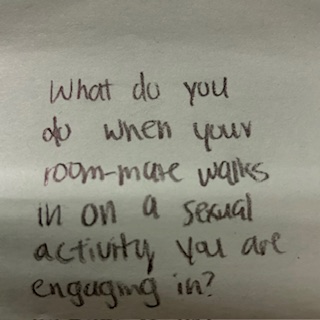
If walls could talk… . Just kidding, they can! I think I’ve heard everything at this point from my dorm wall friends. If I were a human in that situation I’d probably apologize for not alerting them, and if the two of you haven’t talked through some ground rules, I’d suggest doing that as well, to avoid it happening again.
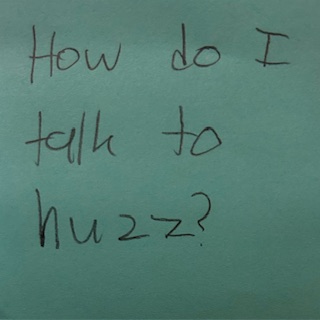
Step 1: recognize that the way you think about other people affects how they react to you. Step 2: start a conversation about literally anything other than dating. Step 3: be gracious about taking no for an answer. You don’t get the harsh put-down if you notice the subtle “I’m not interested”.
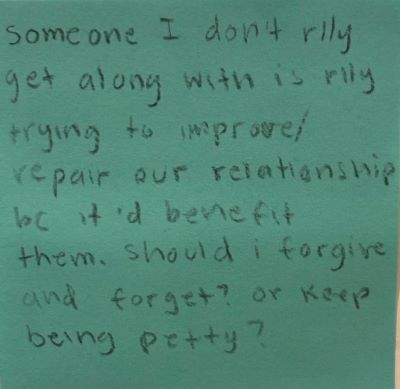
Holding onto the pettiness and repairing the relationship are both optional. Maybe think about what the current situation is doing for you, that might make it clearer what to prioritize.

Perpetually lonely is not good. I highly recommend BC Counseling Services (https://bit.ly/BCUCSOptions) to get some support. But, I can say, don’t lose hope. Loneliness is not a permanent state, you will overcome this.

There are many ideas about this, but generally try to actively listen to what someone is saying and show genuine interest in their lives. Have warm, positive body language (a brief smile with raised eyebrows and keeping eye contact for example) to make folks you interact with feel at ease. Be a bit vulnerable to show you are authentic and folks around you can be themselves. Expressing humor and finding points of connection are a bonus but take time and practice to get right.
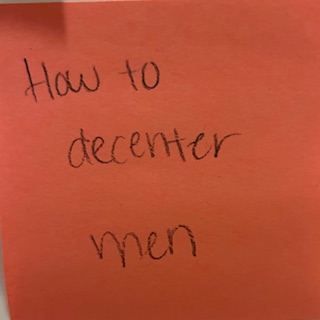
Perhaps one way to decenter men in your daily life is to focus on building strong relationships with friends – especially female friends. Podcasters Aminatou Sow and Ann Friedman wrote a book called “Big Friendship” a few years ago about the work that goes into sustaining those relationships (bit.ly/BigFriendshipBook), and Rhaina Cohen’s more recent “The Other Significant Others” considers the way our world could expand if we picked our friends to be our life partners (bit.ly/OtherSignificantOthersBook). Decentering men in other areas, such as workplaces or academia, requires tackling some entrenched historical systems. You might find this article on “Rooting Out the Masculine Defaults in Your Workplace,” which was written by two psychologists, an interesting place to start (bit.ly/MasculineDefaults).
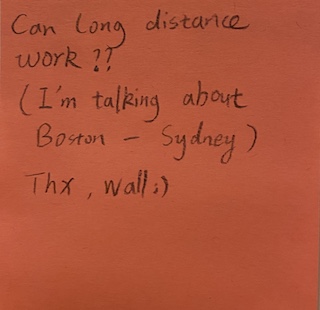
If you are referring to a long-distance relationship, I did some research but could not find evidence that long-distance relationships work or don’t. However, this doesn’t mean it’s worth a try. Like any relationship, communication is key, so I first suggest finding a regular time for you and your partner to call or video-chat each other so that you don’t feel as far. Also, if either of you can afford it, I suggest planning to visit one another in person to maintain a physical connection. There’s also a few titles in our collection on long-distance relationships that are worth checking out: Maintaining long-distance and cross-residential Relationships by Laura Strafford (O’Neill Library Call # HM1106 .S753 2005), Dear John by Nicholas Sparks (O’Neill Library Call # PS3569.P363 D43 2024), and Landing by Emma Donoghue (O’Neill Library Call # PR6054 .O547 L36 2007)
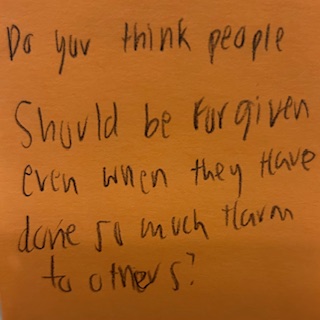
If you’re talking about religious forgiveness, I suggest talking with a pastoral counselor (bit.ly/bc-pastoral-counseling). It might also be worth exploring restorative or transformative justice, and the kind of truth and reconciliation processes that helped make peace in S. Africa and Rwanda. One helper recommended On Repentance and Repair by Danya Ruttenberg (O’Neill Library Call # BL476.7 .R88 2022) for the point of view of the one who did harm and how to make amends. Another recommended Free of Charge: Giving and Forgiving in a Culture Stripped of Grace, by Miroslav Volf.

I’m sorry to hear you have some relationship struggles. Communication struggles are not impossible to overcome but do require patience. It’s hard to give relationship advice from my position as a wall, so I highly recommend talking to someone, perhaps in Counseling Services: bit.ly/BC-counseling
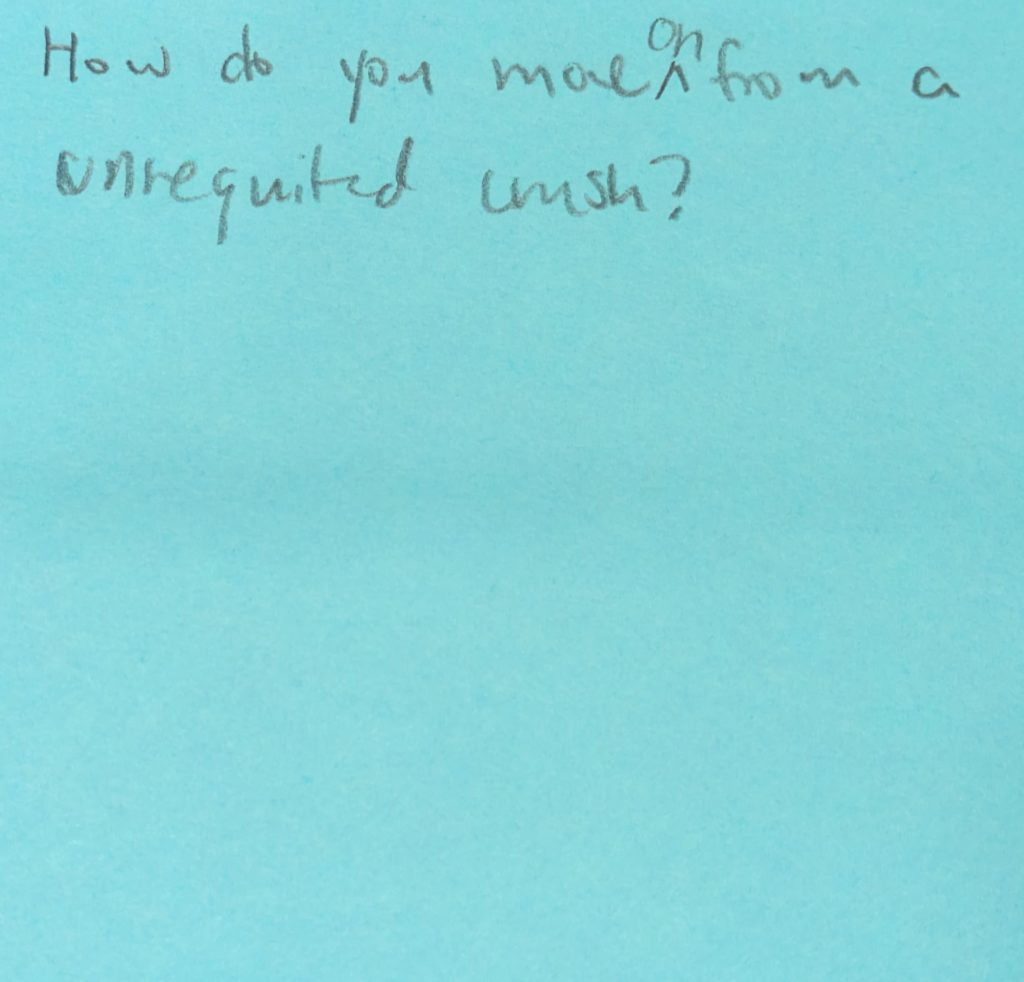
Sorry about that, it’s an under-appreciated worst thing. 1) Feel your feelings. This is a kind of grief, so you might be sad or angry or a bunch of things. Give yourself space to feel that. 2) Take no for an answer. If you can be friends with them, great, but that might not feel OK to you. That’s fine. But the Hollywood storyline where you make them change their mind is not a good model here–IRL it’s at least borderline stalkery. 3) Live your life enthusiastically and you will meet many more lovely people, some of whom you’ll click with.